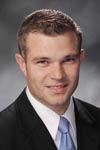St. Louis, Mo. —Missouri’s public defenders are chronically overworked and underfunded, and it’ll take a push by lawmakers for a major change.
Missouri’s public defenders compare poorly, not only to other lawyers in Missouri, and rank dead last among Missouri’s 8 neighboring states in starting salary. An Assistant Public Defender II starts at an average wage of $45,108 annually. The second lowest salary for a comparable public defender can be found in Kentucky, where the starting salary is $49,252 per year.
Missouri public defenders are funded by the state while prosecutors are funded on the county level. Some states, like Illinois, fund both offices through state general revenue funds. Missouri’s own public defender system was scheduled for a modest $3.4 million increase this year. That line item was vetoed by Gov. Jay Nixon, only to be overridden by the legislature. But Nixon has vowed to withhold the funds, citing his constitutional budget authority, until enough revenues come in to cover the costs.
If Missouri’s public defenders get their increase, their total budget will be about $44 million. Comparing that number to the budgets of prosecutors across the state is nearly impossible, as costs are calculated among public defenders as they relate to individual cases.
“It’s very difficult to compare those costs,” said Michael Barrett, general counsel for Missouri State Public Defenders. “We’re still fighting to get lawmakers and the public to understand just how overwhelming the caseload is for the public defender’s office right now.”

Missouri public defenders turned to the American Bar Association in a study earlier this summer for some relief, asking the organization to help fund a study examining just how heavy the caseload was. The results were staggering.
Missouri public defenders had about 8.7 hours to prepare for Class A and B felony cases, according to the study. But the same study’s survey of lawyers says that an average of 47.6 hours is needed to appropriately prepare for a case. While bolstering defense for the poorest accused criminals in Missouri has typically been seen as an issue for local Democrats, there is a sense of bipartisan support now that some conservative lawmakers are beginning to see a lack of public defenders as a shortage of defense against a big government.
“My first thought is a good check and balance on the system would require that the person who is being prosecuted has ample time and opportunity to have access to their public defender,” said Rep. Paul Curtman, a Republican from Union, Missouri. “The purpose of taxpayers paying into that system is to have someone there to offer up a defense, which is a guaranteed right. If you aren’t getting the time to meet that public defender and he can’t properly prepare, you’re not getting value out of those tax dollars.”
Prosecuting attorneys have routinely dismissed the ABA study as inflated. Public defenders and the ABA have the greatest incentive to exaggerate their own caseloads or the time they need, according to detractors.
In fact, prosecuting attorneys contend that they are just as chronically underfunded as their counterparts in defense. Jason Lamb, executive director of the Missouri Association of Prosecuting Attorneys, said there was an “internal debate” among Missouri prosecutors about whether or not to push to become state-funded operations, rather than county employees.
“It’s the subject of discussion right now, because you have a lot of issues facing a county budget that is heavily reliant on state reimbursement,” Lamb said. “State’s fund prosecutors in different ways. Senator Dixon actually filed a bill that would have voluntarily reformulated our prosecutor system, and that’s something we continue to debate and discuss.”
How vigorously Missouri should fund defense versus prosecution is folded into a somewhat larger debate about the use of court fees and tickets to fund local municipalities across the St. Louis region. In areas with overworked public defenders and vigorous, well-funded local prosecutors, average Missourians are more and more often finding themselves at a distinct disadvantage within their own legal system.
“The role of public defenders is one of the cornerstones of a fair and just judicial system,” Rep. Jeremy LaFaver, D-Kansas City, said. “Adequately funding the PD system needs to be a priority for the legislature.”
But this may be an area with some bipartisan agreement on the need for reform. Democrats across St. Louis have loudly criticized cities for what they call the “endless cycle” of court fees and tickets, late fees, court dates, and more, as violations of basic civil liberties. On the conservative side of the aisle, some Republicans see poorly funded defense as an endorsement of big government.
“I have no doubt [public defenders] are doing everything they can to spend their money efficiently,” Curtman said. “But they can’t do the things that the legislature can do to really reform the system. And the first thing is looking to our laws and seeing where we can make changes so that only the people that need to be placed in our court system end up there.”
Curtman said that among many problems was that Missouri simply had too many laws on the books and too many people who are not criminals being punished “to the fullest extent of the law.”
“I’m a big fan of drug courts,” Curtman said. “If there’s a way we can get people out of our court system and into a program where they get a mentor and go back into the community to contribute to the tax base and contribute to society instead of thrown in jail perhaps for many years for a fairly innocuous crime, then that’s the solution.”
Curtman said he was supportive of the city of Columbia’s efforts to decriminalize possession of small amounts of marijuana, in part in an effort to prevent a backlog of low-level marijuana offenses in the local court system. Curtman said he was receptive to that idea statewide.
“There’s only so much we can do,” Barrett said. “Reform needs to be an effort from a lot of people, not just us.”
Collin Reischman was the Managing Editor for The Missouri Times, and a graduate of Webster University with a Bachelor of Arts in Journalism.








